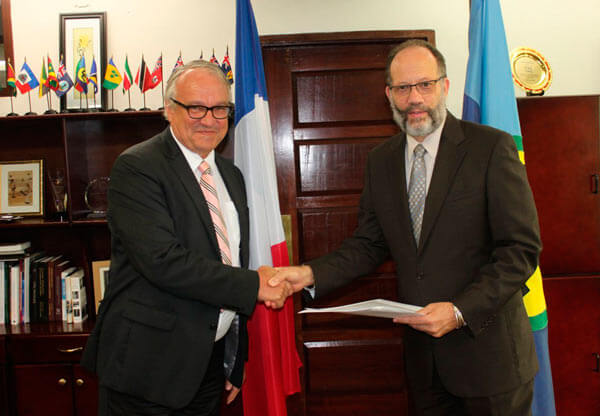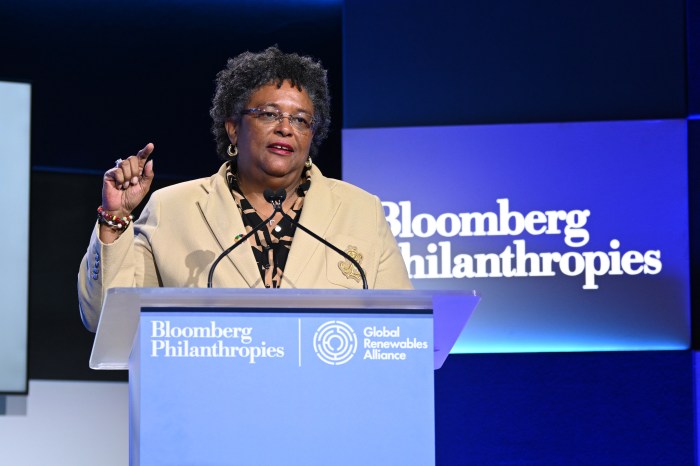Caribbean Community (CARICOM) Secretary General, Irwin LaRocque, has begun the fight back against the European Union’s placement of some regional countries on a blacklist for future punitive action because of tax practices.
European Union finance ministers stated on Dec. 5 that the union had placed Barbados, Grenada, St. Lucia, and Trinidad and Tobago among 17 countries on a tax havens blacklist for failing to meet so-called good governance standards set by that bloc.
Caribbean Life had reported that in response to the blacklisting, Barbados’ Minister of International Business, Donville Innis, called for the 15-member CARICOM group to spearhead regional resistance against this European Union burden.
And LaRocque used the occasion of recent accreditation of a new Ambassador of France to CARICOM, Antoine Joly, to show that the region is prepared to take on the EU on this negative listing that can severely affect Caribbean economies.
“This decision by the EU has been based on new and unilaterally-determined criteria, that go beyond the generally accepted international tax transparency and accountability standards which our countries have been diligently meeting over the past several years,” LaRocque said.
Describing the European Union move as ‘arbitrary and punitive,’ the secretary general said, “CARICOM strongly objects to this listing of our member states and calls on the EU to remove our member states from this pernicious list.”
“As ambassador to the Community, your direct engagement in promoting awareness about the extent of our capabilities and the obstacles we face in our aspirations for economic development is of great significance,” LaRocque said to Joly.
Blacklisting of these regional states could carry strong economic impacts including the unwillingness of already reluctant international banks to do business with regional financial houses, termed de-risking. This will affect all international transactions associated with the region from affecting the ability of merchants in the region to purchase imports or receive payments for exports, to the halting in money remittances from Caribbean nationals in north America and Europe to relatives and friends in the region.
The four Caribbean countries named in the blacklist are not all, as the EU explained that its concerns about regional countries failing to meet its set standards could include many more but listing of them will be delayed as they are given time to recover from natural disruptions this year.
“For certain jurisdictions, specific factors needed to be taken into account. For example, eight jurisdictions, Antigua and Barbuda, Anguilla, Bahamas, British Virgin Islands, Dominica, St. Kitts and Nevis, Turks and Caicos, United States Virgin Islands, that were badly hit by the hurricanes in summer 2017 have been given until early 2018 to respond to the EU’s concerns,” the statement read in part.
The CARICOM SG’s straight talk to the French ambassador might mark the beginning of a welcome push-back.
Antigua’s Ambassador to the United states and the Organisation of American States, Ronald Sanders, had said, “many of the countries on the list … in the Caribbean, either cried-out in astonishment or disbelief. But not one of them asked what gives the Council of the EU the right to put any country on a blacklist and to impose sanctions on them for non-compliance with European Union-created criteria on taxation.”
Further, he said, “no one questioned the authority of 28 European countries alone to decide tax standards for the rest of the world.”
But Barbados Minister Inniss a few days ago suggested that the European Union itself might be uncertain of why it blacklisted the Caribbean territories.
“Up to five o’ clock this evening when I last communicated with the director of international business, we had not received official correspondence from the European Union as to their reason for action,” he said, adding “you have to know what the problem is that the European Union has. So, until that is made clear to us I don’t think I can make a public announcement as to what needs to be done.”


























